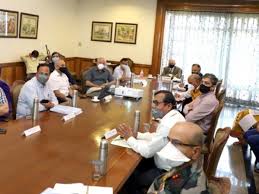Every debtor in bankruptcy travels somewhere, at least once. While most consumer bankruptcies are simple affairs, completed without a lot of trudging back and forth to court, each debtor must make at least one appearance, at a hearing with the somewhat misleading name “meeting of creditors.”
This is a good time to put an end to that.
The meting of creditors is not really “going to court” in the strict sense. It may or may not take place in a courthouse. No judge or magistrate is present. Instead, a trustee — a lawyer who signs up to review bankruptcy cases for the feds — presides. Creditors rarely show up. Most such meetings consist primarily of debtors answering a series of perfunctory questions under oath. A typical meeting lasts about five minutes when an individual, as opposed to a business, is the debtor.
These meetings are mentioned in section 341 of the bankruptcy code, hence the name “341 meeting” that is sometimes applied. For individuals filing Chapter 7 cases, this section instructs trustees to give the debtors a brief spiel on the consequences of filing bankruptcy, the effect of discharging debts, the ability to use other chapters of the code, and the meaning of a re-affirmation of debt.
Related bankruptcy code section 343 states that debtors “shall appear and submit to examination under oath at the meeting of creditors under section 341(a) of this title. Creditors, any indenture trustee, any trustee or examiner in the case, or the United States trustee may examine the debtor.”
In Chapter 11 cases involving major companies, creditors actually do get together and form committees, as they will soon be required to cast votes on the debtor’s plan of re-organization. The meetings make a certain amount of sense in this situation.
In consumer cases, the 341 meeting is mostly used instead to ferret out if the debtor has any hidden assets that have not yet been disclosed. Lawsuits from accidents and slip-and-fall cases, windfall inheritances, intangible assets like copywrighted songs, are often left off bankruptcy petitions, as debtors do not always equate them as assets, although they are.
But with the corona virus pandemic overtaking the court system and American life in general, 341 meetings are being cancelled left and right, and are piling up like cord wood. With a flood of new cases expected soon, it no longer makes sense to require all debtors to converge on a central location to mumble out some answers to a pre-fab list of questions.
If the creditor meetings were scrapped, some might complain that debtors wouldn’t have to “do anything’ to go bankrupt. Under this view the meetings serve as a form of penance for debtors trying to shed their burdens. But this view ignores the real costs of bankruptcy that debtors actually care about — fees and credit rating hits. Traveling to a room somewhere to answer questions is just an annoyance, doesn’t really even register on the scale.
And as far as debtors having carte blance in a system without regular creditor meetings, it probably ain’t so. The United States Trustee office is well adapted to auditing debtors, and for the most part does so without heavy reliance on face-to-face contact. E-mail, mail, and phone calls to the debtor’s attorney are the preferred methods, in what usually amounts to a large exchange of paperwork.
So if there is another stimulus package coming down the pike from Congress, lets put in a small line item saying good bye to section 341 for individuals declaring Chapter 7.
